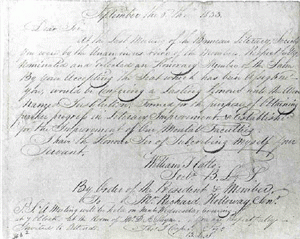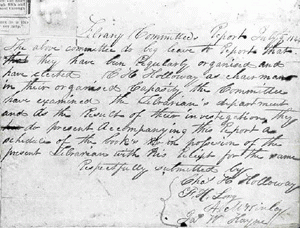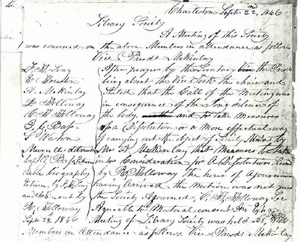
Bonneau Library Society
Charleston, South Carolina
Where does the history of library services to Blacks in South Carolina begin?
With our present state of knowledge so incomplete, any answer to that question is, at best,
speculative. It probably begins with Black slaves who had access to their owners' private
libraries. However, severe legal restrictions placed on the teaching of slaves to read and
write meant these instances were few and poorly documented. The small communities of
free Blacks in South Carolina made efforts to establish private library societies.
The Bonneau Library Society of Charleston, established about 1830, is an excellent example
of the efforts among free Blacks to establish private library societies in
antebellum South Carolina. Named for the Black educator, Thomas Bonneau, this organization
strove to maintain high cultural standards for the community. Extant records of the society
indicate that it not only provided access to books but also served as a cultural center for
the free Black community.
The minutes of the Bonneau Society indicate the advanced education of its members. (All three
documents on this page come from Mae Purcell Holloway's scrapbook, stored at the College of Charleston's Avery Research Center.)

|

|
 |
|
Nomination for Honorary Membership 1833 |
Committee Report 1844 |
Meeting Minutes 1846 |